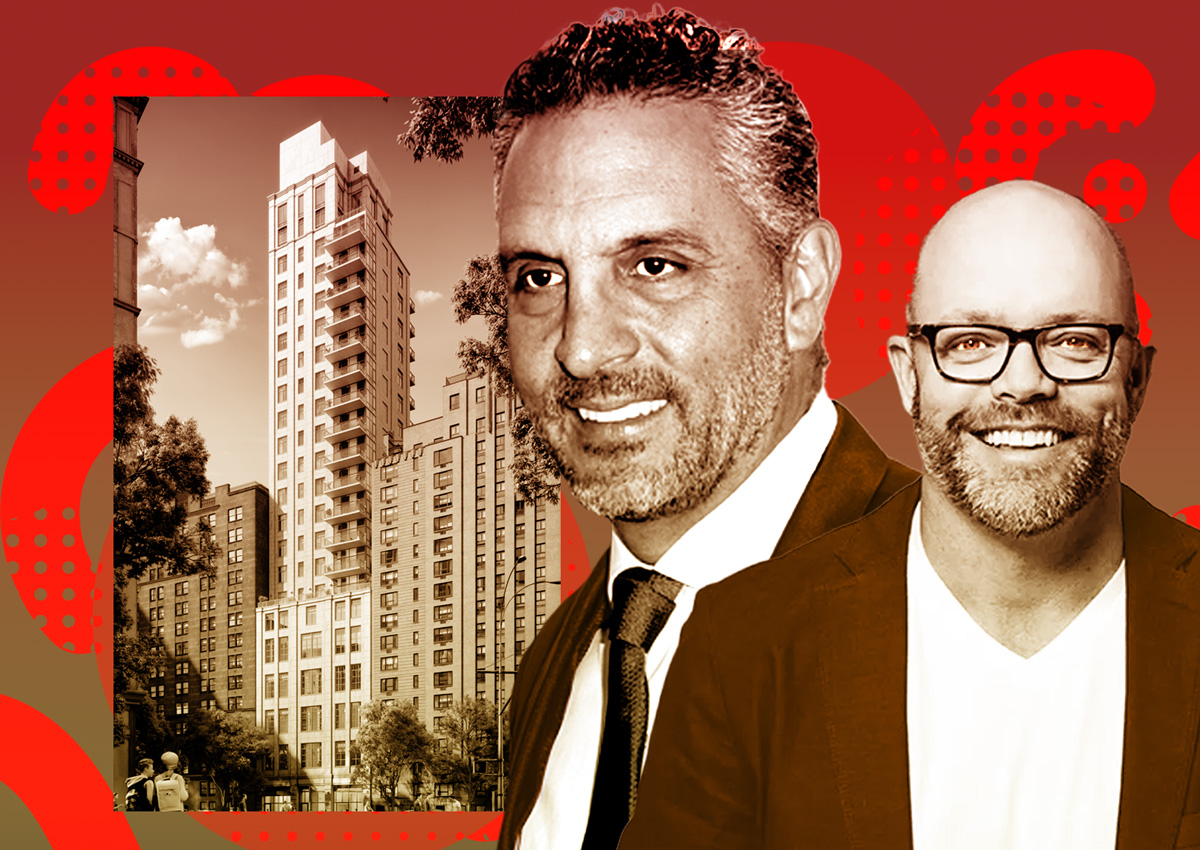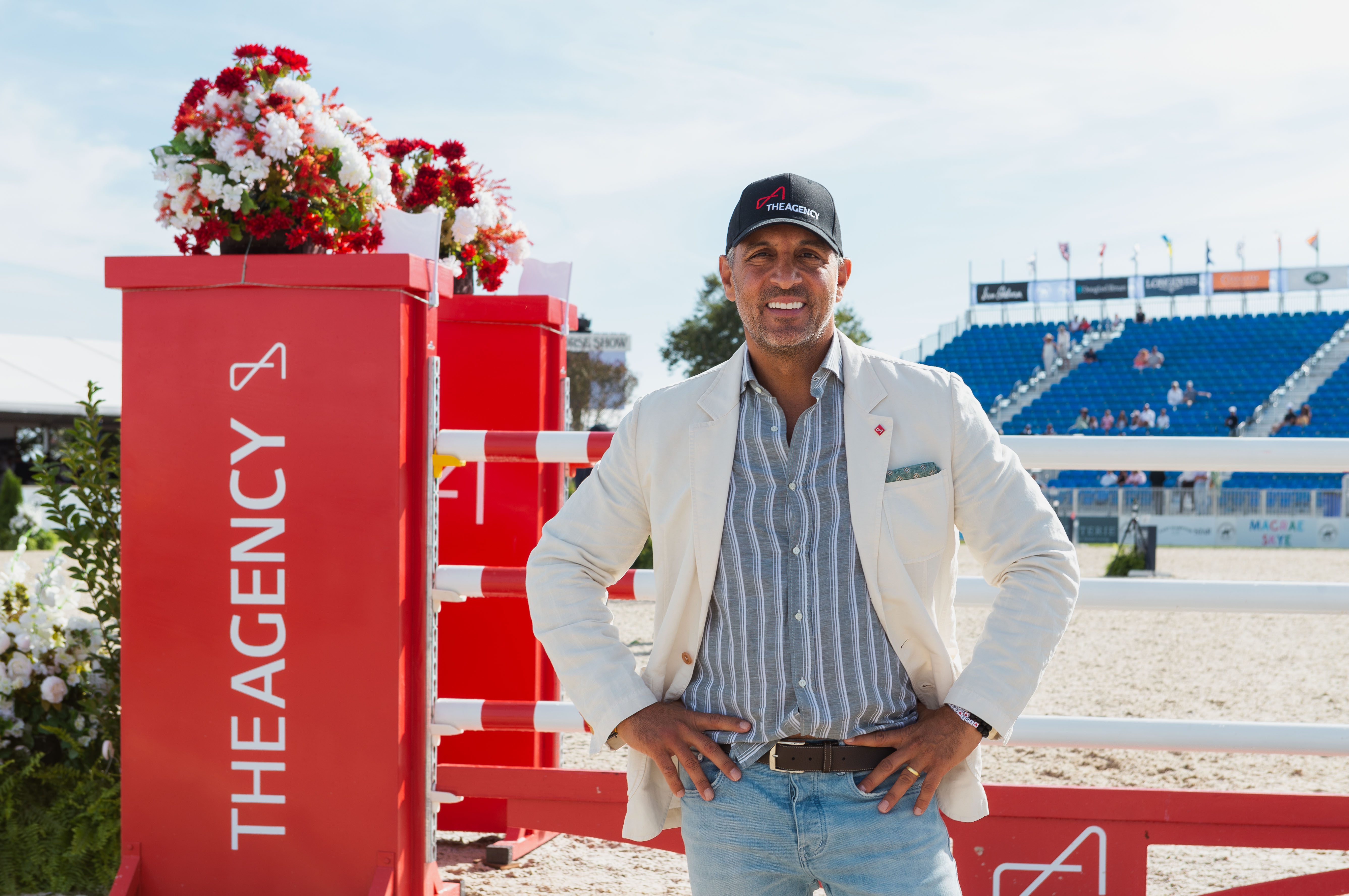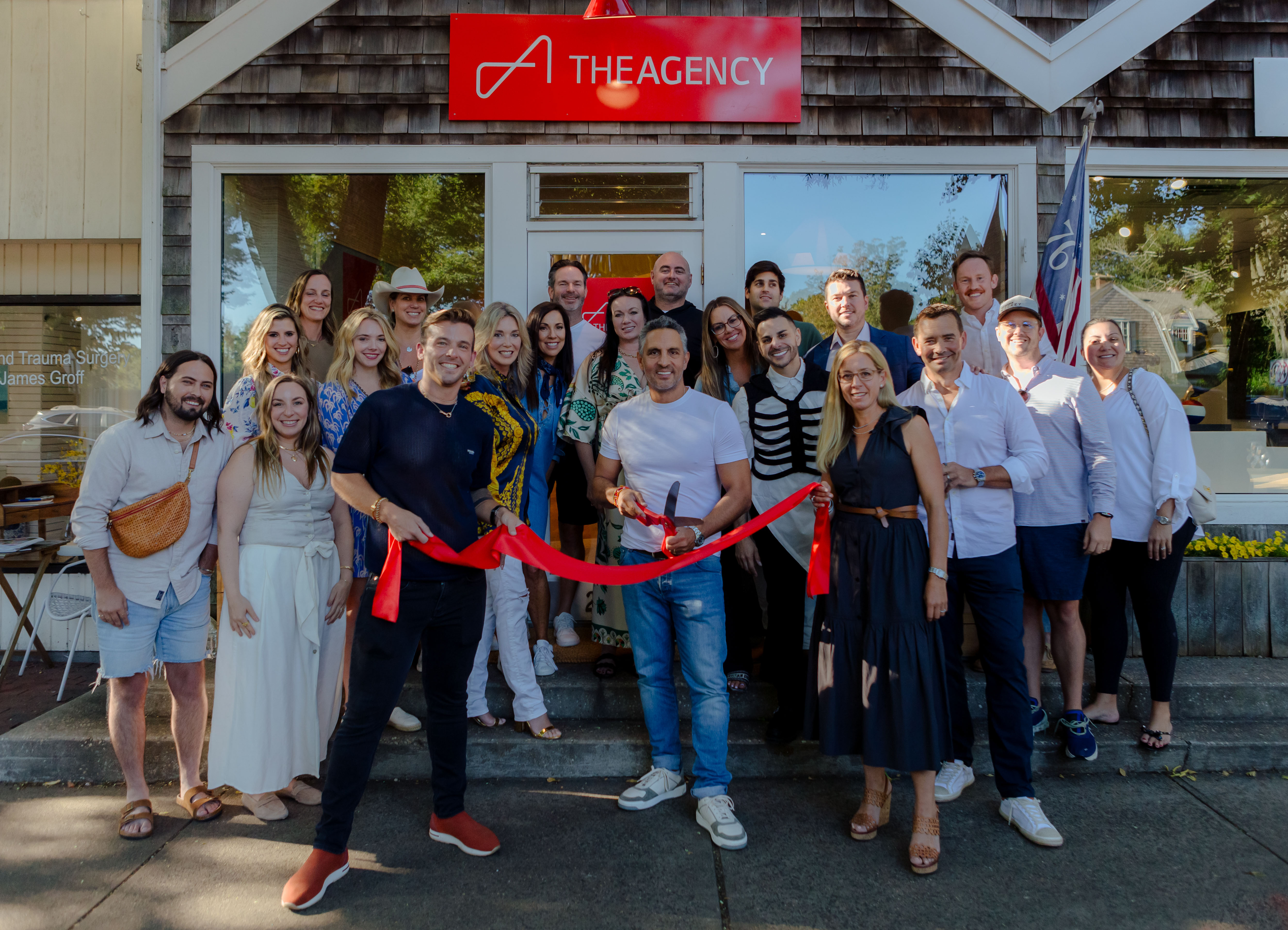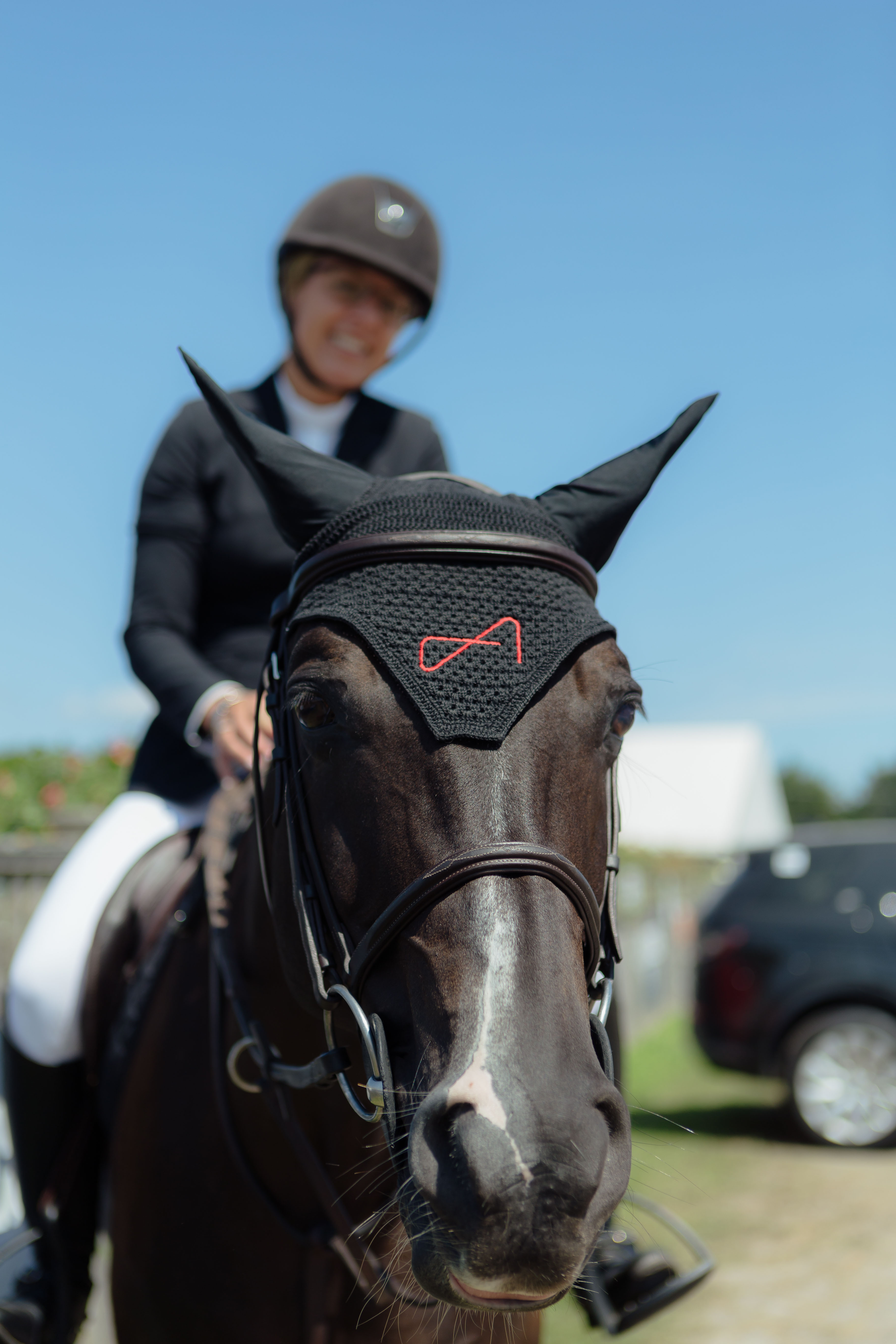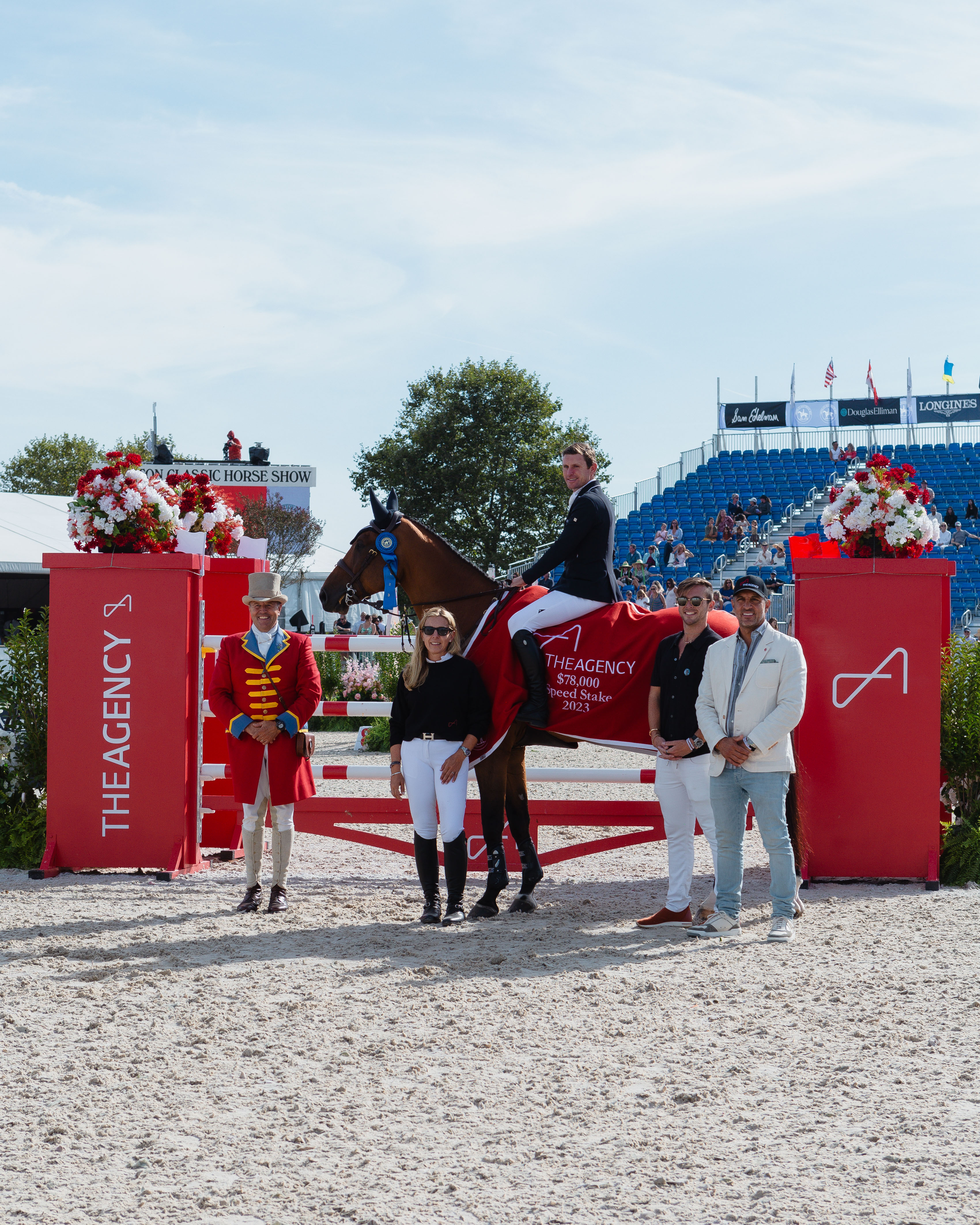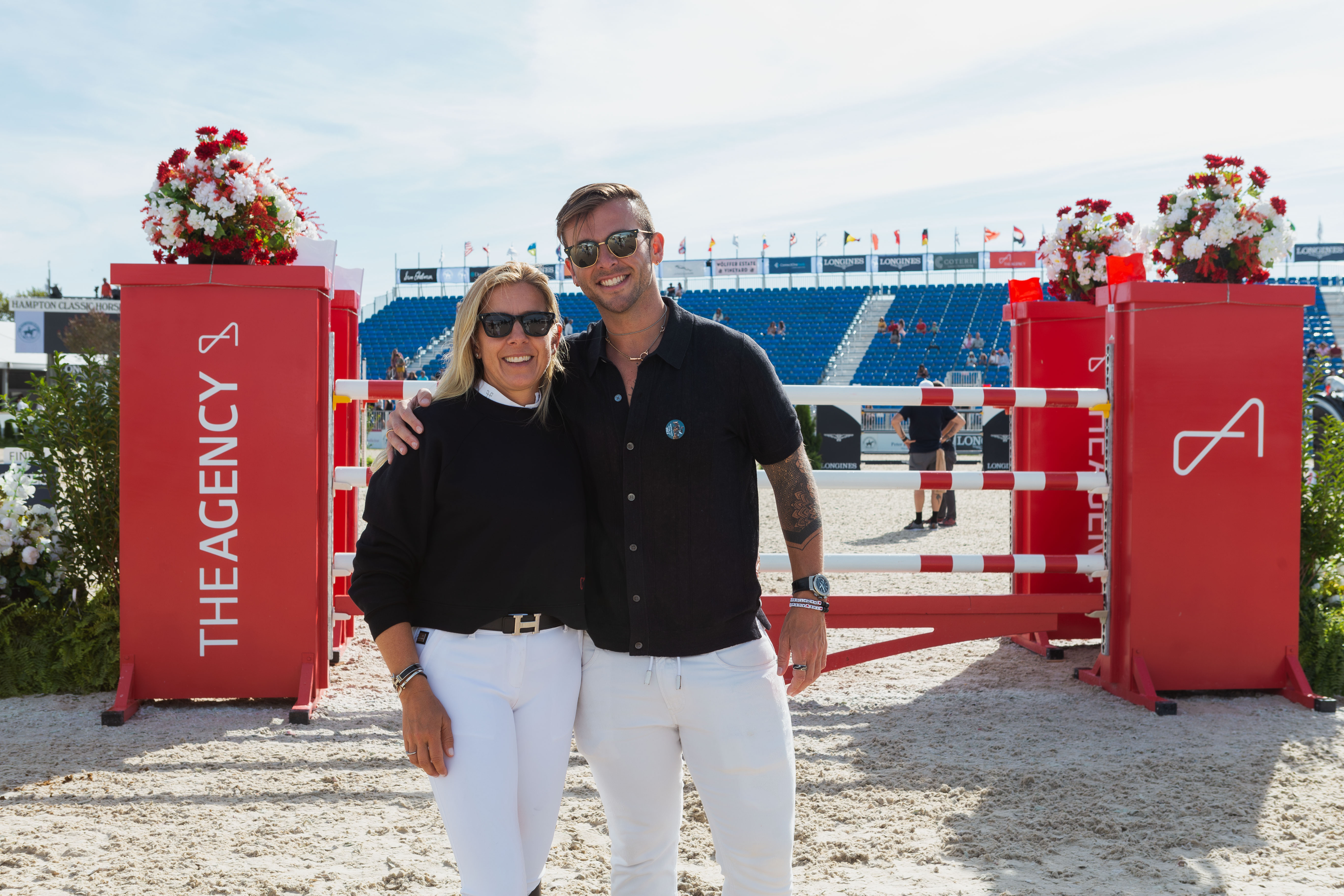There’s no better place for a Hamptons residential firm — particularly a new arrival — to drop some serious dough on sponsorship than The Hampton Classic Horse Show.
For the title sponsorship sum of $120,000, The Agency had a private chalet, where the Los Angeles-born brokerage and Tyler Whitman, a former “Million Dollar Listing” star who landed at the company after its Triplemint acquisition, could host about 70 people in full view of the grandstand and main tent.
Dressed in a brown Bruno Cucinelli suit and frequently holding a bottle of Celsius energy drink to power him through the networking blitz, Whitman spent nearly the entire day in the tent glad-handing prospective clients and agents from other firms.
Around him, the famous (Brooke Shields, rumors of Alec Baldwin’s attendance) rubbed elbows with familiar real estate faces like former “Real Housewives of New York” star and Douglas Elliman broker Kelly Bensimon and the top brass of New York’s residential scene, Elliman chairman Howard Lorber, Corcoran CEO Pam Liebman and Brown Harris Stevens CEO Bess Freedman.
The private party, which drew Agency agents and franchise owners, was meant to jumpstart critical partnerships for the fledgling local office, a key part of the company’s value proposition the brokerage is betting clients buy into: That the franchise has the feel and service of a boutique, but also provides a huge referral network.
The Classic events, along with a $60,000 launch party represent the social media-friendly brand’s bid to shake up the market and establish a foothold alongside its legacy peers.
Whitman notched an early triumph by recruiting longtime Sotheby’s agent Dana Trotter to be his franchise co-founder. While Whitman, who has a rolodex full of wealthy city clients, will be the face of the franchise, Trotter is the lifelong resident with deep local connections who will be running the day-to-day and bringing the bulk of the local business, at least at the outset.
To be successful, they’ll have to muscle their way into a constrained and famously insular market, where established agents can be hostile to new competition.
High stakes, low inventory
Two years ago, a franchise opening in the Hamptons would have seemed like a sure thing. Lockdowns caused by the pandemic pushed wealthy New Yorkers to the South Fork, transforming an area long known as a premier vacation destination into something closer to a suburb, as buyers used their homes as co-primary residences with their homes in the city.
With the boom in business came more competition for sales and agents. Since last year, Serhant, Modlin Group and Christie’s International Real Estate entered the market and recruited star agents, at a time when a lack of supply is constraining the market.
“That’s probably the biggest question I get from everyone,” said Whitman. “‘Do we really need another real estate brokerage out here?’”
A lack of inventory has constrained sales since 2022 and new listings on the market have declined year-over-year in six of the last seven months, according to data collected by Miller Samuel for Douglas Elliman.
“Now the competition is infinitely more intense,” said Cody Vichinsky, co-founder of Bespoke.
That’s left Compass’ Joe Fuer wondering if The Agency is a little late to the party.
“I’m definitely confused by the timing,” said Fuer. “We’ve had a lot of new players enter the market and we’re obviously well past that Covid [market]… I think some of the newer companies have some work to do in order to establish their brand and their clientele.”
Along with market conditions, the Hamptons residential scene has its own challenges for newcomers.
“‘We don’t work with a city brokerage’ and hang up on me,” he said of Hamptons agents. “I can’t tell you how many times I walked into an open house and an agent, to my client in front of me, would say … you should work with a local agent and not a city agent.”
Shaping up Out East
Despite the post-pandemic realities and local quirks, Whitman spotted opportunity in the market — but not without a cost.
In his pitch deck, which Whitman began circulating last winter, he set a goal of 6 percent market share — which he figures to be about $400 million in volume — in the franchise’s first year. By year three, Whitman aims to have three offices open and 13 percent market share.
“I was actually kind of backing into it from when I was doing the financial modeling,” said Whitman. “It doesn’t feel like I’m shooting for the stars here.”
Those costs include a $45,000 franchise fee, $500,000 in working capital and $250,000 for office, licensing and legal expenses, according to an early version of Whitman’s pitch deck obtained by The Real Deal. They pitched their five investors on gaining 6 percent market share year one — or $400 million in sales.
At the private chalet event, Daniel Stevenson, one of The Agency’s top agents in Los Angeles, said he’d already tapped the Hamptons office to find one of his clients a summer rental. He thinks the franchise will be “huge” for his business 2,500 miles away, explaining there’s an overlap between the Malibu and Hamptons markets because the Hamptons provide a more communal beach experience.
“People who are in L.A. do tend to also be in the Hamptons and Miami and there are actually referrals that happen back and forth,” he said.
Molly Townsend, managing partner of The Agency’s New York City office, said she envisions a collaboration with the Hamptons outpost that blurs the line between the markets, where city agents may sometimes take listings in the Hamptons with Whitman’s help.
“I feel like most brokerages it’s very black and white: You are a city agent [or] a Hamptons agent and it makes it difficult for people to do business in two markets,” she said. “My goal is to not make it difficult. We can live in the gray and have more of a case by case.”
Despite the constrained market, Vichinsky said he’s optimistic about The Agency’s prospects in a market where “sellers are a lot more in-tune” than his arrival in 2014.
“If they can get their value proposition clear, the market is yearning for it,” he said.
Read more


